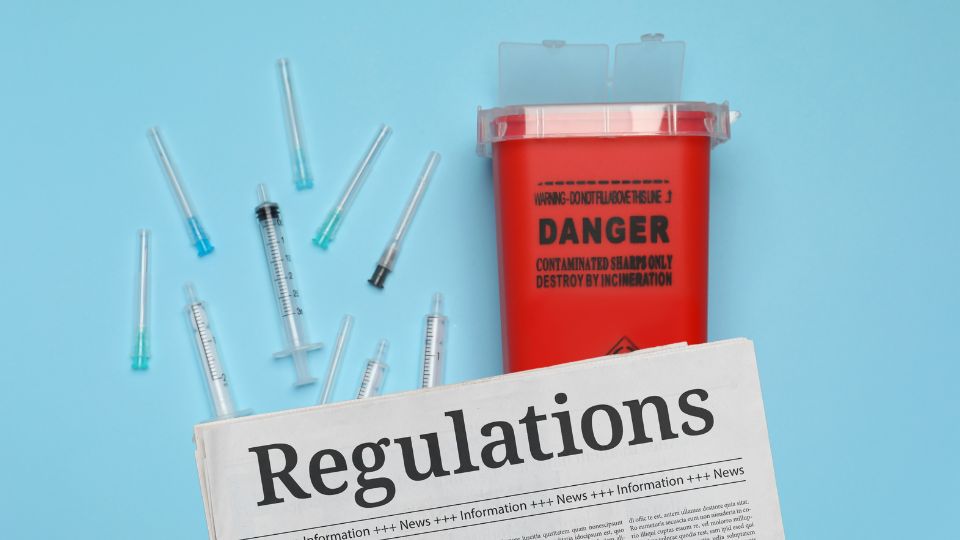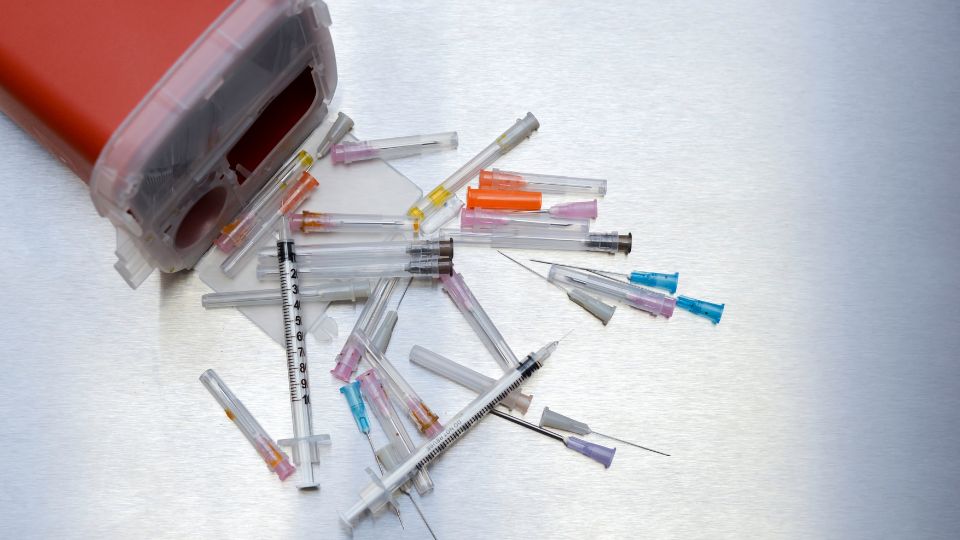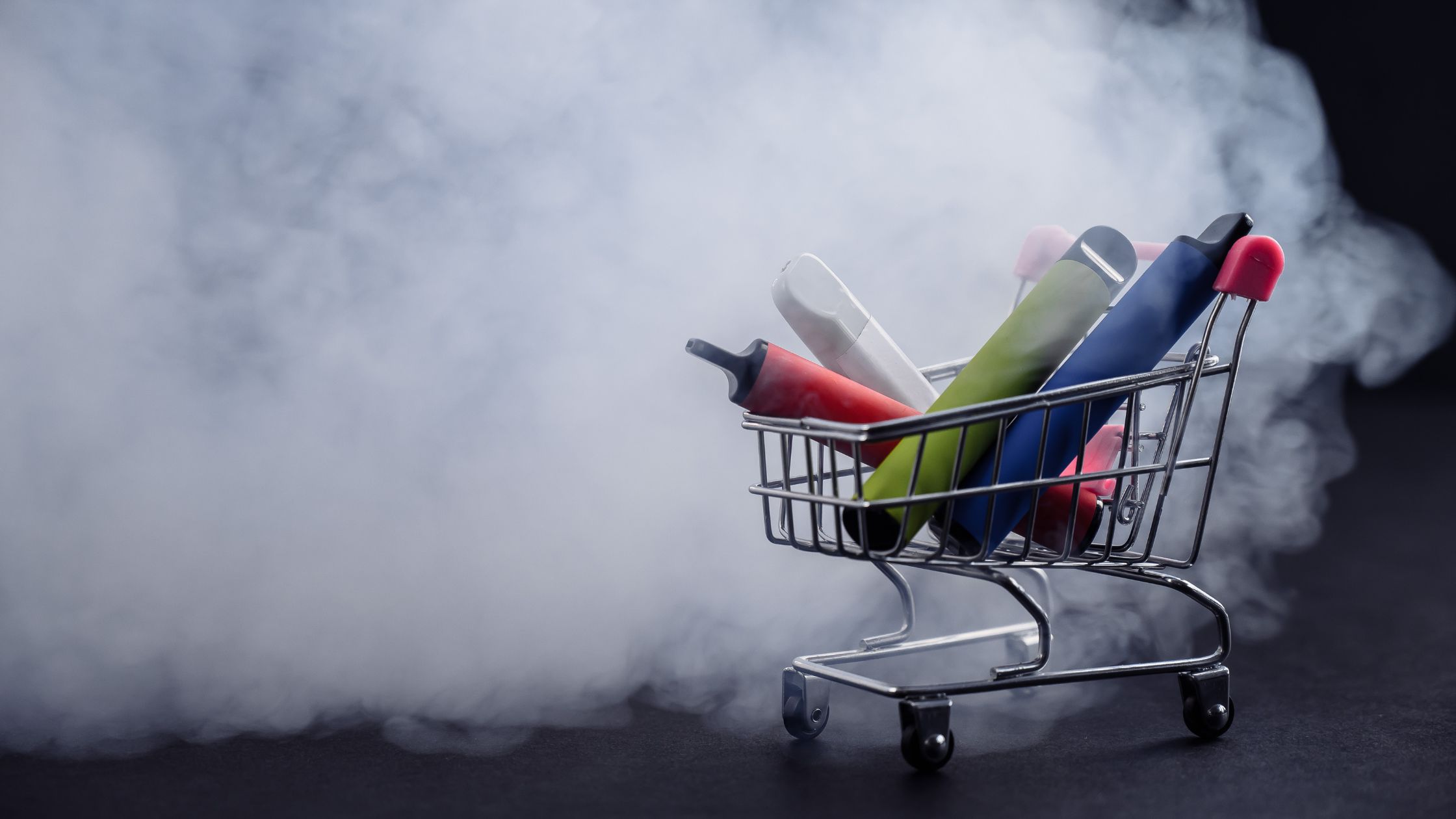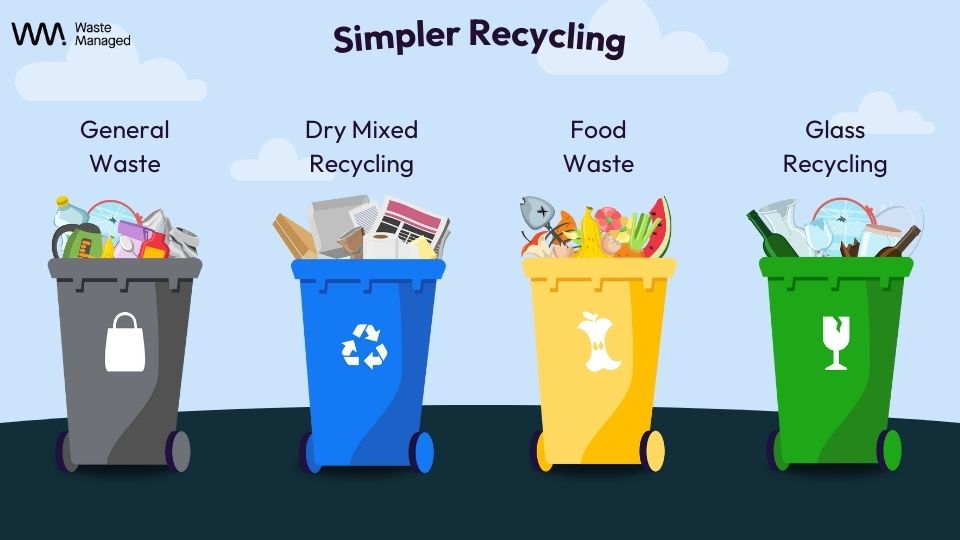
This guide outlines the legal requirements for sharps waste disposal in the UK to help business owners understand their responsibilities and ensure compliance with the law.
Table of Contents:
- Environmental Protection Act 1990
- Controlled Waste Regulations 2012
- The Health and Safety at Work etc. Act 1974
- The Hazardous Waste (England and Wales) Regulations 2005
- The Carriage of Dangerous Goods and Use of Transportable Pressure Equipment Regulations 2009
- Conduct a Waste Audit
- Register as a Hazardous Waste Producer (if applicable)
- Segregate and Store Sharps Waste Safely
- Engage a Licensed Waste Carrier
- Maintain Records
- Provide Training for Employees
- Implement Safe Systems of Work
Understanding Sharps Waste
Sharps waste includes any medical device or object that could potentially puncture or lacerate the skin. Common examples include:
- Needles
- Syringes with needles
- Scalpels and blades
- Lancets
- Broken glass from laboratory settings
Businesses that may generate sharps waste include healthcare facilities, veterinary clinics, beauty salons, tattoo parlours, research laboratories, and any other settings where these items are used.
Key Legislation Governing Sharps Waste Disposal
The disposal of sharps waste in the UK is governed by several key pieces of legislation, including:
Environmental Protection Act 1990
The Environmental Protection Act 1990 sets out the legal framework for waste management and places a duty of care on businesses to manage their waste responsibly.
Under this Act, businesses must ensure that their waste, including sharps waste, is:
- Handled and stored safely and securely
- Described accurately on a waste transfer note
- Disposed of legally at a licensed waste management facility
Controlled Waste Regulations 2012
The Controlled Waste Regulations 2012 categorises sharps waste as clinical waste, which is considered hazardous. The regulations specify that clinical waste must be disposed of separately from other types of waste and handled by licensed waste carriers.
The Health and Safety at Work etc. Act 1974
The Health and Safety at Work etc. Act 1974 requires employers to protect the health and safety of their employees and others who may be affected by their activities. In the context of sharps waste, businesses must:
- Provide appropriate training for employees handling sharps
- Use secure containers for the disposal of sharps
- Implement safe systems of work to prevent injuries from sharps
The Hazardous Waste (England and Wales) Regulations 2005
The Hazardous Waste (England and Wales) Regulations 2005 apply to businesses producing hazardous waste, including sharps waste. Businesses must register as hazardous waste producers if they produce more than 500 kg of hazardous waste per year. They must also use consignment notes to track the transfer of hazardous waste.
The Carriage of Dangerous Goods and Use of Transportable Pressure Equipment Regulations 2009
The Carriage of Dangerous Goods and Use of Transportable Pressure Equipment Regulations 2009 apply to the transportation of dangerous goods, including sharps waste. Businesses must ensure that sharps waste is packaged, labelled, and transported safely to prevent accidents and injuries.

Steps to Comply with Sharps Waste Disposal Requirements
To comply with the legal requirements for sharps waste disposal in the UK, businesses should follow these steps:
Conduct a Waste Audit
Identify the types and quantities of sharps waste your business produces. This will help you determine your legal obligations and the appropriate disposal methods.
Register as a Hazardous Waste Producer (if applicable)
If your business produces more than 500 kg of hazardous waste per year, you must register with the Environment Agency as a hazardous waste producer.
Segregate and Store Sharps Waste Safely
Use dedicated sharps containers that comply with British Standards (BS 7320) for the disposal of sharps. Containers should be:
- Puncture-resistant
- Leak-proof
- Clearly labelled with the biohazard symbol
Ensure containers are stored securely and are not overfilled.
Engage a Licensed Waste Carrier
Sharps waste must be collected by a licensed waste carrier who is authorised to handle clinical waste. The carrier must provide a waste transfer note or consignment note that details the waste being transported and the final disposal site.
Maintain Records
Keep records of all waste transfer notes and consignment notes for at least three years. These records must be available for inspection by regulatory authorities.
Provide Training for Employees
Ensure that all employees handling sharps waste receive appropriate training on the risks associated with sharps and the proper procedures for their disposal.
Implement Safe Systems of Work
Establish and maintain safe systems of work to prevent injuries from sharps. This includes providing personal protective equipment (PPE) and ensuring that employees follow proper procedures when handling sharps.
Penalties for Non-Compliance
Failure to comply with the legal requirements for sharps waste disposal can result in severe penalties, including:
- Fines
- Imprisonment
- Revocation of licences
- Damage to business reputation
Conclusion
Proper sharps waste disposal is a legal requirement for many businesses in the UK and is essential for protecting public health and the environment.
By understanding and complying with the relevant legislation, businesses can avoid penalties and ensure the safety of their employees, customers, and the wider community.








